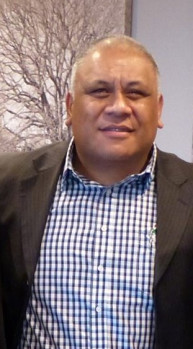
Planning & budgeting
Saving & investing
KiwiSaver
Tackling debt
Protecting wealth
Retirement
Home buying
Life events
Setting goals
Money tracking
Plan your spending with a budget
Getting advice
Studying
Get better with money
What pūtea beliefs do you have?
How to build up your emergency savings to cover unexpected costs
How to save your money
How to start investing
Find a financial adviser to help you invest
Your investment profile
Compound interest
Net worth
Types of investments
Term deposits
Bonds
Investment funds
Shares
Property investment
How KiwiSaver works and why it's worth joining
How to pick the right KiwiSaver fund
Make the most of KiwiSaver and grow your balance
How KiwiSaver can help you get into your first home
Applying for a KiwiSaver hardship withdrawal
How to use buy now pay later
What you really need to know before you use credit
How to get out of debt quickly
Credit reports
Know your rights
Pros and cons of debt consolidation
Credit cards
Car loans
Personal loans
Hire purchase
Student loans
Getting a fine
What happens if I start to struggle with moni?
How to build up your emergency savings to cover unexpected costs
Cryptocurrency
How to protect yourself from fraud and being scammed
About insurance
Insurance types
Insuring ourselves
Wills
Enduring powers of attorney
Family trusts
Insuring our homes
Losing a partner
Redundancy
Serious diagnosis
How to cope with the aftermath of fraud
Separation
About NZ Super – how much is it?
When you’re thinking of living in a retirement village
How to plan, save and invest for retirement
Manage your money in retirement
Find housing options in retirement
Four approaches to spending in retirement
Planning & budgeting
Saving & investing
How to build up your emergency savings to cover unexpected costs
How to save your money
How to start investing
Find a financial adviser to help you invest
Your investment profile
Compound interest
Net worth
Types of investments
Term deposits
Bonds
Investment funds
Shares
Property investment
View all
KiwiSaver
Tackling debt
How to use buy now pay later
What you really need to know before you use credit
How to get out of debt quickly
Credit reports
Know your rights
Pros and cons of debt consolidation
Credit cards
Car loans
Personal loans
Hire purchase
Student loans
Getting a fine
What happens if I start to struggle with moni?
View all
Protecting wealth
How to build up your emergency savings to cover unexpected costs
Cryptocurrency
How to protect yourself from fraud and being scammed
About insurance
Insurance types
Insuring ourselves
Wills
Enduring powers of attorney
Family trusts
Insuring our homes
Losing a partner
Redundancy
Serious diagnosis
How to cope with the aftermath of fraud
Separation
View all
Retirement
Home buying
31 May 2021
Reading time: 5 minutes
Posted by Tom Hartmann,
2 comments

Language – and language weeks like this one – can be so enriching. There’s a lot that’s worth celebrating.
Languages are not just different ways of saying the same old things – they are entirely other ways of thinking about them, too! (In a previous life I worked as a translator.) And that brings helpful, and at times profound, new perspectives to us all.
The theme for this year’s Vaiaso o le Gagana Samoa is:
Poupou le lotoifale. Ola manuia le anofale.
Which means, ‘Strengthen the posts of your house, for all to thrive.’
 I had a talanoa (inclusive dialogue) with Sam Lafolua in South Auckland, who pointed out a strong connection between this year’s theme and strengthening financial capability.
I had a talanoa (inclusive dialogue) with Sam Lafolua in South Auckland, who pointed out a strong connection between this year’s theme and strengthening financial capability.
‘There are many posts in a Samoan fale that need strengthening in order for people to thrive,’ says Lafolua. ‘One of these is financial wellbeing and security.’
He points out an important principle in Fa’a Samoa (the ‘Samoan way’, the customary way of life in the culture).
‘The concept and principle of ola fuafua lelei, which encompasses good financial planning and budgeting, is an important part of Fa’a Samoa that needs to be revisited and re-explored as to what it means here in New Zealand.’
‘Ola fuafua lelei is not about today – it’s about the future,’ explains Lofolua.
This Samoan principle can be translated a few different ways (there’s that richness of language), but essentially it means ‘planning life well’. Here’s how it breaks down:
Ola = life, to live, to be in working order
Fuafua = plan, calculate, anticipate
Lelei = good, fine, positive, effective, favourable, orderly, thoroughly, adequately
‘It’s about living a life where you are planning well,’ says Lafolua. ‘And in the Samoan context, it’s about ensuring there’s enough for the future.’
More generally, sorting out the long term might mean, for example, working out our retirement numbers. It could be charting how our choices will affect our net worth, or pinpointing which savings are most meaningful.
All this can be especially challenging, particularly for those in the community who are coping with low incomes and high expenses.
‘Sometimes that’s where we run into a bit of a car crash,’ Lafolua says. ‘Working in lower paid jobs – that’s pretty hard to do these days.’
He describes newly arrived families in the community who are successful at finding a $600 per week job, only to find that their rent is $520.
‘How do we ola fuafua lelei in that situation? It’s a challenge.’
He points out that ola fuafua lelei is not just financial. ‘It’s about health, wellbeing, food security. It’s all encompassing.’
Happily, the collective of the dynamic Samoan community supports those who are struggling.
‘That communal element is very strong,’ says Lafolua. ‘And that support is more than enough – you don’t need to go to a loan shark. It’s about using those resources well.’
However, the cultural reality of fa’alavelave (the practice of contributing money to large occasions such as weddings or funerals) is often misunderstood externally as simply a financial burden.
‘A lot of the criticism we cop as a community is because of fa’alavelave – the obligation to family,’ explains Lafolua. ‘It’s particularly difficult when you are matai (chief), a leadership holder.’
What’s forgotten, he says, is the reciprocity that encourages the sense of community.
To plan ahead for the cultural giving of fa’alavelave, he says that avoiding living beyond our means and having an emergency fund are key. ‘For me that’s worked perfectly in terms of meeting some of the obligations I have to within the family.’
There’s the Samoan saying Tago i le to'o, tepa i ata, which uses the analogy of a fishing boat: ‘When I’m steering the ship, I’m keeping my eye on the horizon.’
By aiming to ola fuafua lelei with our own money, we can make sure that our choices are not just about today, and where our money is going right now. It’s about long-term thinking.
Our planning can also future-proof us for the disasters that can occur.
‘We struggle if we do not,’ says Lafolua. ‘We never get ahead. We are always hungry, looking for money, unhappy. The stress levels are always there. These are always going to be present if we don’t flip these conditions.’
If we are able to strengthen that post of the fale, kids in generations to come will learn from that.
‘That’s the essence of ola fuafua lelei. It’s planning for tomorrow as perfect.’
Sam Lafolua is Relationship Manager at The Cause Collective in Auckland, with a wide background in the education sector here in New Zealand and across the Pacific, including Samoa, Tokelau and Fiji.
Use verification code from your authenticator app. How to use authenticator apps.
Code is invalid. Please try again
Don't have an account? Sign up
Or log in with our social media platforms


A free account gives you your very own space where you can save your tools and track your progress as you get ahead.
Or sign up using Google:



Comments (2)
Comments
Loraine Faigafa | 16 June 21
Thank you for sharing! It's encouraging seeing one of our own people talk about finances and the struggles within our community. God bless!
Anonymous | 1 June 21
Thank you Reverend Sam
No one has commented on this page yet.
RSS feed for comments on this page | RSS feed for all comments